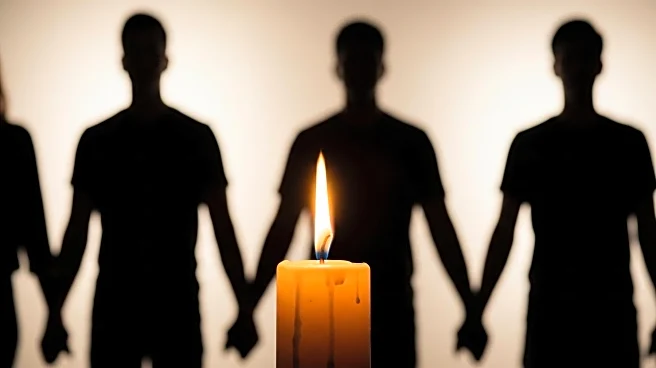What is the story about?
What's Happening?
The National Students for Justice in Palestine (NSJP) in the United States has called for revenge following the death of a Gaza influencer known as 'Mr. FAFO'. The influencer was reportedly killed amid clashes involving Hamas. In a controversial Instagram post, NSJP condemned those they referred to as 'collaborators', labeling them as 'Zionist proxies'. This call for action has sparked significant attention and debate, highlighting tensions surrounding the ongoing conflict in Gaza. The influencer's death has become a focal point for protests and expressions of solidarity within the activist community.
Why It's Important?
The call for revenge by NSJP underscores the deep-seated tensions and divisions related to the Israeli-Palestinian conflict, particularly among activist groups in the United States. Such statements can influence public opinion and potentially escalate tensions within communities that are already polarized over the issue. The labeling of certain individuals as 'collaborators' and 'Zionist proxies' may further complicate efforts for dialogue and peace, as it can lead to increased hostility and mistrust. This development is significant as it reflects the broader impact of international conflicts on domestic activism and discourse in the U.S.
What's Next?
The situation may lead to increased activism and protests within the U.S., as groups like NSJP mobilize in response to the events in Gaza. There could be heightened scrutiny and debate over the role of U.S.-based organizations in international conflicts, particularly regarding their influence and rhetoric. Additionally, this may prompt discussions among policymakers and community leaders about the implications of such activism and the need for constructive dialogue. The response from other activist groups and stakeholders will be crucial in shaping the narrative and potential outcomes.
Beyond the Headlines
The call for revenge and the labeling of individuals as 'collaborators' raises ethical questions about the responsibilities of activist groups in promoting peace and understanding. It also highlights the challenges of balancing passionate advocacy with the potential for inciting violence or division. This situation may lead to broader discussions about the role of social media in activism and the impact of digital platforms in shaping public discourse.

















